|
9/1/2020 RETHINKING FIELD TRIPS DURING THE COVID-19 PANDEMIC I often bring back souvenirs for my classroom from the places I visit. A book, model, fossil, or photo can help illustrate concepts that I teach. Unfortunately, the science vacation I had planned this summer didn’t materialize because of the pandemic. 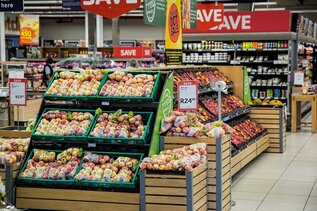 Since I didn’t end up traveling, I had plenty of time to think about teaching and learning. I wondered, what “field trip” could teachers, students, and parents take and still be COVID-19 safe? It occurred to me that one of the few destinations we have been allowed in this corona-virus-year is the grocery store. USING GROCERY STORE ITEMS TO TEACH What a perfect place to find tens of thousands of artifacts for study in either virtual or traditional classrooms! The foods sold there offer opportunities for science explorations, as well as economic analysis, political discussions, and understanding linguistic morphemes, to name just a few. 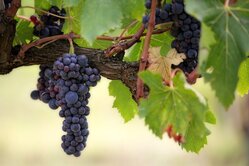 Take bananas, for example. Like grapes, tomatoes, and cucumbers, bananas are botanically considered berries. (Raspberries and blackberries are not berries!). In Europe and the Americas, the cooking variety of bananas are known as plantains. They are starchier than the common dessert bananas. In India, Southeast Asia and the islands of the Pacific, there are many different kinds of bananas, some of which are for cooking, and others which can be eaten raw. What School Subjects Can You Teach With Bananas?Biology / Reproduction / Biodiversity / Chemistry / Ecology: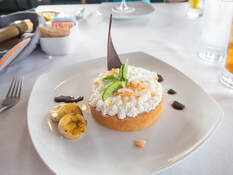 Bananas offer a veritable bonanza of information for science teachers and the topics they cover. Biology teachers and their students could embark on a reproduction exploration of why bananas don’t have seeds. They could investigate how bananas get sick and the importance of biodiversity. Chemicals are used on modern banana plantations and an ecology unit might focus on their impacts. Chemistry students might wonder if the flavoring from that pie last night came from real bananas or the lab. Social Studies / History / Economics / Geography / Political Science: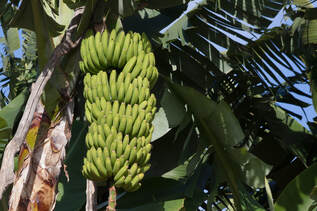 Social Studies teachers could also have a banana blast with the variety of themes to be explored. Bananas are the most common fruit in every grocery store and they are found at plenty of convenience stores, as well. What is the history that allowed the fruit to become so ubiquitous? Economics students might wonder what farming and production technologies enable them to be sold so inexpensively? Geographically, what nations produce the most bananas? How were the political policies of Caribbean nations impacted by the banana trade in the 18th century through today? English / Language / Elementary: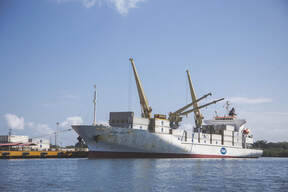 English and language teachers could ask their students to research the parts of words related to bananas. Banana palms have a pseudostem. Each banana berry has an epicarp, mesocarp, and endocarp. What do the morphemes mean and what is their derivation? Elementary students will be in awe of the epic journey that bananas make. How do they get to the store and what processes do they endure during the trip? HAVE ANY IDEAS OF YOUR OWN?These are just a few of my open-ended banana exploration ideas that you can take with your students on a COVID-19 Safe Scholastic Field Trip to the Grocery Store. If you try any of them, or if you’ve tried some ideas of your own, please share them below!
1 Comment
|
AuthorGertrude Katz has spent over 30 years teaching K-12 public school students all major subjects. She has taught biology and education at the college level. The majority of her career has been spent instructing biology at the secondary level. Categories
All
|
 RSS Feed
RSS Feed